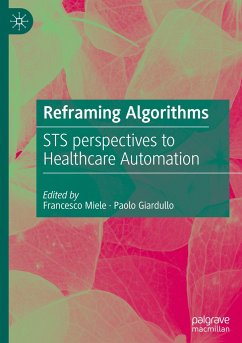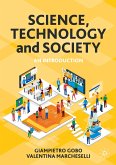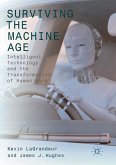This book provides a fully-fledged exploration of science and technology studies (STS) perspective applied to algorithms developed to support care processes. By concentrating on algorithmic technologies for supporting processes of social and health care, the book intersects topics connected to technoscientific innovation and specifically digital transformation for health care. By offering different attempts of deconstructing algorithmic technologies, the book provides a landmark reference for those interested in undertaking research focused on areas connected to algorithmic decision-making for health care. The book will be an invaluable reference for scholars interested in the STS debate and related fields (e.g.,human-computer interaction, computer supported cooperative work, participatory design, and sociology of health and medicine). This book responds to a growing interest in the application of algorithms' to local and national care systems. The book balances theoretical and empirical analysis bringing together experienced and early-career scholars.
This book will be of interest to researchers in STS as well as healthcare professionals and managers as some of the topics covered help to critically reconsider some facets of planning through algorithmic technologies supporting the practice of healthcare and decision-making.
This book will be of interest to researchers in STS as well as healthcare professionals and managers as some of the topics covered help to critically reconsider some facets of planning through algorithmic technologies supporting the practice of healthcare and decision-making.








